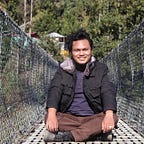AI Saturdays #FirstDay
AI Saturdays is a global movement across the globe initiated by Nurture.AI, a Singapore based company, to make Artificial Intelligence education at the quality and rigour of the world’s best universities accessible to anyone for free. To date, we are now in 61 cities around the world in places like Los Angeles (USA), Kathmandu (Nepal), Lagos (Nigeria), Mumbai (India), Sunnyvale (California), Kuala Lumpur (Malaysia), Warsaw (Poland) just to name a few. Our participants range from people who have mastered deep learning through online courses and lecture videos, Kaggle masters, Fast.ai Fellows and people with Masters and PhDs from top universities like Stanford, Harvard, Oxford, to complete beginners isn AI — there’s something for everyone.
DN: AI Developers Nepal organized first official AI Saturdays’ workshop in Nepal. The workshop was held in Islington College, Kamal Marg, Kathmandu, For 14 weeks Saturday. The event detail can be found here.
First day of workshop stated with introduction to AI Saturdays and formation of DN: AI Developers Nepal. The event was fair for both beginner and intermediate learners because its was divided into two groups according to it. I had not used AI tools so I decided to join beginner group. Here, I will be summarizing the first day workshop.
As with every workshop, it began with installation of software. First, of all python was installed then onward anaconda .
After installation check in software have been installed or not
python --version
conda --versionIf it does not define the version then set up environmental variable(windows) and set path in bashrc(linux).
Initial commands for setup
{21:38}[2.3.1]~ ➭ mkdir workshop
{21:38}[2.3.1]~ ➭ cd workshop
{21:38}[2.3.1]~/workshop ➭ conda create --name projectname
Fetching package metadata ...........
Solving package specifications:
Package plan for installation in environment /home/ranjan/anaconda3/envs/projectname:Proceed ([y]/n)? y#
# To activate this environment, use:
# > source activate projectname
#
# To deactivate an active environment, use:
# > source deactivate
#{21:39}[2.3.1]~/workshop ➭ source activate projectname
(projectname) {21:39}[2.3.1]~/workshop ➭
Open jupyter notebook (Jupyter Notebook is an open-source web application that allows you to create and share documents that contain live code, equations, visualizations and narrative text).
(projectname) {21:40}[2.3.1]~/workshop ➭ jupyter notebookYou will see web application running on browser. Where you can code.
Click new and click Python 3. And get started with python in jupyter notebook.
Press Enter to move to other tab
Press Shift + Enter to compile that code
Some Code Screenshot starting with python cmd. Simple cmd necessary form AI are discussed like array, dictionary,methods, loop etc.
Some Code Screenshot of numpy library. NumPy is a library for the Python programming language, adding support for large, multi-dimensional arrays and matrices, along with a large collection of high-level mathematical functions to operate on these arrays.First of all numpy is imported and for easiness it is defined as np. Some function like sum, min,average,array and finding dot product is discussed
Next we discussed about matplotlib.pyplot . Provides a MATLAB-like plotting framework. pylab combines pyplot with numpy into a single namespace.
Finally, we discussed about panda.The most powerful and flexible open source data analysis / manipulation tool available in any language. Some terms discussed below. The two primary data structures of pandas, Series (1-dimensional) and DataFrame (2-dimensional), handle the vast majority of typical use cases in finance, statistics, social science, and many areas of engineering.
So, the terms discussed in first day :- Python, Numpy, Pandas, Jupyter Notebook.
All thanks to DN: AI Developers Nepal for organizing the event. And thanks to Angeela Acharya,Ashis Parajuli,Ashish Sharma, Nishan Pantha, & Kshitiz Mandal for hosting AI Saturdays Workshop.
